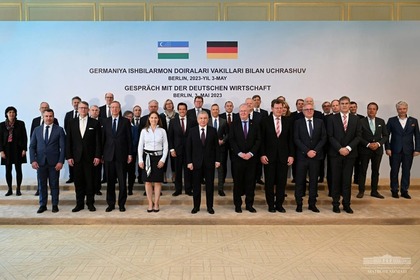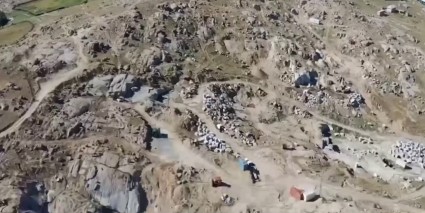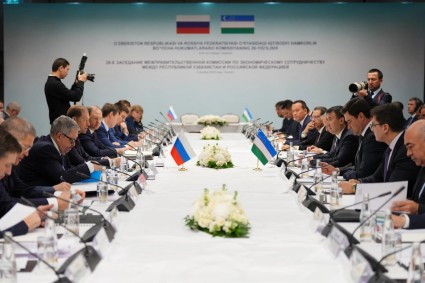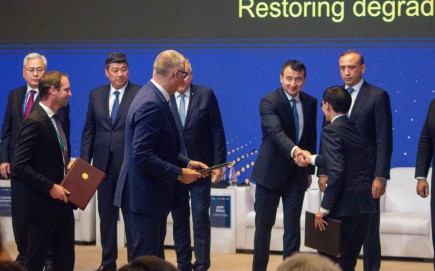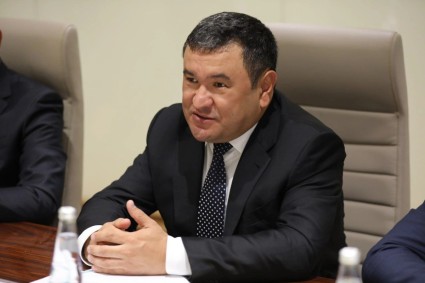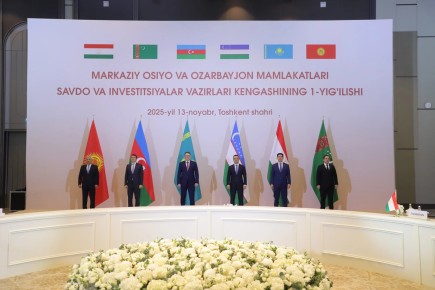As part of the business program of his trip to Germany, President Shavkat Mirziyoyev today met with the leadership of major German companies and financial institutions, the presidential press service said in a statement.
The event was attended by the heads of the Eastern Committee of the German Economy, the German-Uzbek Business Council, the German Energy Agency, the CEOs of about 30 major companies and banks, such as CLAAS, Knauf, Siemens Energy, Lasselsberger, Aurubis, Linde Group, Gunter Papenburg, Falk-Porsche-Technik, Mangold Consulting, DB Engineering, Landesbank, Commerzbank, KfW Bank, Deutsche Bank and others.
The dialogue in this format was first took place in January 2019, during the official visit of the head of state to Germany. As a result, a number of joint high-tech projects were launched in Uzbekistan to modernize sectors of the economy, and trade, economic and investment partnerships were intensified.
Shavkat Mirziyoyev in his opening remarks especially noted the achieved high level of trust and mutual respect in the ties with Germany. More than 60 projects totaling 5 billion euros are being implemented in the country with the participation of German partners.
In recent years alone, the volume of German investments topped 4 billion euros, and the number of joint ventures has doubled. Such “locomotives” of the German economy as CLAAS, Knauf, Gunter Papenburg, Linde Group and Falk-Porsche-Technik are successfully operating in Uzbekistan.
The German-Uzbek Business Council, chaired by the Prime Minister on behalf of Uzbekistan, has become an important mechanism for the regular “synchronization of watches,” the report says.
Shavkat Mirziyoyev emphasized that the key role in the implementation of the breakthrough agreements and joint plans reached during the current visit can and should be played by business circles.
On the sidelines of the Uzbek-German business forum held the day before, a number of new trade, financial and investment agreements were signed to develop industrial cooperation and expand technological partnership worth of 9 billion euros.
We are talking about large-scale projects in green energy, development of transport infrastructure, metallurgy, water supply, agriculture, chemical, mining, automotive, textile, electrical industries and other areas.
It is planned to expand cooperation in the banking and financial sector, in particular on project financing with German banks: Deutsche Bank, Commerzbank, KfW and Landesbank.
“President Shavkat Mirziyoyev emphasized Uzbekistan’s readiness to become an effective and reliable platform for German business in the new realities of large-scale and serious shocks in the global economy,” the statement said.
As per the new Constitution of Uzbekistan, guarantees to ensure the inviolability of private property have been strengthened, provisions are clearly established on the creation by the state of conditions for fair competition and the independence of the judiciary, the statement added.
Shavkat Mirziyoyev stressed that now the state guaranteed the rights of investors and their protection in court. “From now on, not businesses, but government agencies will be required to prove the legality of their decisions. And any ambiguities that arise will be interpreted in favor of investors,” the statement emphasized.
“A foreign investor should associate Uzbekistan with stability, reliability and predictability,” Shavkat Mirziyoyev said. “We are ready to create all conditions so that every German businessman feels free and confident in our country. By combining the advanced developments and innovative technologies of Germany with the resources and human potential of Uzbekistan, we will be able to achieve great results.”
During the exchange of views, the business leaders of Germany voiced proposals and expressed their readiness to continue cooperation and expand cooperation in priority areas with the introduction of high-tech and innovative solutions.
President Shavkat Mirziyoyev thanked them for initiatives, expressed satisfaction with the substantive dialogue that had taken place and instructed the heads of relevant ministries and departments to approve a road map that provides for the joint development of projects and, in general, the implementation of the agreements reached during the visit.

